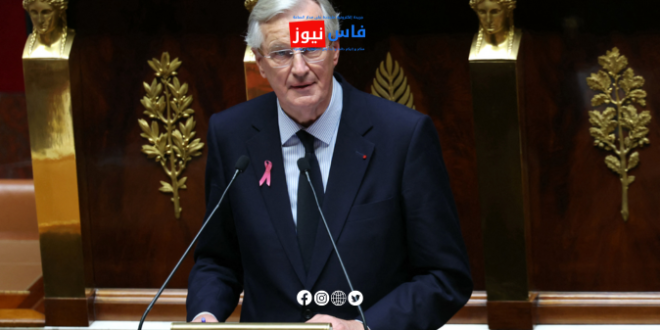The French government led by Michel Barnier is facing a severe political crisis, as its days are likely numbered after the Prime Minister was compelled to activate Article 49.3 of the French Constitution to pass the social security budget. This move is seen as an implicit call for a vote of no confidence, with both the left and the National Rally announcing they would vote against the government.
If the vote of no confidence is adopted by the National Assembly, it would be the first such instance since the overthrow of Georges Pompidou’s government in 1962. Should this occur, Barnier would become the holder of the shortest term in the history of the Fifth Republic.
In his address to the National Assembly, Barnier stated: “We have now reached a moment of truth that puts everyone before their responsibilities. It is now up to you… to decide whether our country will have responsible and necessary financial texts for our citizens, or if we will enter uncharted territory.”
Barnier, 73 years old and appointed by Emmanuel Macron on September 5, used Article 49.3, which allows texts to be passed without a vote, exposing the government to the risk of a no-confidence motion.
The opposition did not delay in responding, with the left-wing alliance “New Popular Front” initiating a motion of no confidence. The leader of the deputies from La France Insoumise declared that Barnier would face “disgrace and censure” on Wednesday.
The motion will be defended by Éric Coquerel, chair of the Finance Committee, and the National Rally has indicated it will support it. Marine Le Pen noted that Barnier had not responded to the demands of 11 million voters from the National Rally.
Lacking a majority in the National Assembly, the government has made multiple concessions to the far-right party over the past week regarding electricity taxes and medical assistance. In the morning, Barnier spoke on the phone with a deputy and announced a new gesture in their direction by committing “that there will be no reduction in drug reimbursements” in 2025.
However, for Marine Le Pen, this was still insufficient. Upon arriving at the Assembly in the afternoon, just before a crucial session, she reiterated her demand that the Prime Minister abandon partial pension de-indexation if he wanted to avoid censure.
In his speech, Barnier closed the door on further concessions: “I have gone as far as I can in dialogue with all political groups.”
The Assembly was set to vote on a text resulting from last week’s work of a joint committee of deputies and senators, which now anticipates a deficit of €18.3 billion in 2025.
If Barnier’s government were to fall, France would plunge further into the political crisis created by Macron’s dissolution of the National Assembly in June, with an additional risk of a financial crisis related to France’s ability to borrow at low rates.
Budget Minister Laurent Saint-Martin warned in the chamber that “without the social security financing bill we are examining today, the deficit in social accounts would reach nearly €30 billion next year.”
The gap between France’s borrowing interest rates and Germany’s (the “spread”) has significantly widened following Barnier’s announcement, indicating investor concerns.
The Élysée Palace has made no comment on this new political landscape while Emmanuel Macron landed in Riyadh for a three-day state visit to Saudi Arabia. However, it is indeed the head of state who will quickly have to take action because if a scenario of censure is confirmed, he will need to appoint a new Prime Minister.
Former office holder Gabriel Attal urged opposition parties “not to give in to temptation for the worst and therefore not to vote for censure against the government.”
 فاس نيوز ميديا جريدة الكترونية جهوية تعنى بشؤون و أخبار جهة فاس مكناس – متجددة على مدار الساعة
فاس نيوز ميديا جريدة الكترونية جهوية تعنى بشؤون و أخبار جهة فاس مكناس – متجددة على مدار الساعة













